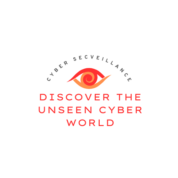Cloud Security Tools for Enumeration and Discovery: A Comprehensive Guide
In the ever-evolving landscape of cloud computing, security remains a paramount concern. As organizations increasingly rely on cloud services to store sensitive data and manage critical applications, the need for effective security measures has become more crucial than ever. Enumeration and discovery play a vital role in cloud security, enabling security teams to identify potential vulnerabilities, assess security posture, and proactively address risks.

What is Enumeration and Discovery?
Enumeration and discovery are the processes of identifying and gathering information about cloud environments. This information can include cloud infrastructure details, public resources, misconfigured permissions, and potential vulnerabilities. By understanding the attack surface of a cloud environment, security teams can prioritize security efforts and implement appropriate mitigation strategies.
Essential Tools for Cloud Enumeration and Discovery
A wide range of tools is available to assist security teams in enumerating and discovering cloud environments. These tools offer varying capabilities and features, catering to specific needs and expertise levels. Here’s an overview of some essential tools:
- o365creeper: This tool specializes in enumerating valid email addresses within Office 365 tenants.
- CloudBrute: This versatile tool discovers cloud infrastructure across multiple providers, including AWS, Azure, and GCP.
- cloud_enum: This multi-cloud OSINT tool enumerates public resources, including S3 buckets, Azure blobs, and Google Cloud Storage buckets.
- Azucar: This dedicated tool audits Azure environments for misconfigured permissions, vulnerabilities, and compliance issues.
- rowdStrike Reporting Tool for Azure (CRT): This tool queries Azure AD/O365 tenants to uncover sensitive permissions and configuration settings.
- ScoutSuite: This multi-cloud tool provides a comprehensive security posture assessment of different cloud environments.
- BlobHunter: This tool scans Azure blob storage accounts for publicly accessible blobs, identifying misconfigured containers that expose sensitive data.
- Grayhat Warfare: This tool combines blob scanning with AWS bucket search to uncover publicly exposed data in both Azure and AWS environments.
- Office 365 User Enumeration: This tool identifies valid usernames within Office 365 tenants, aiding in phishing and social engineering prevention.
- CloudFox: This tool automates situational awareness for cloud penetration tests, gathering information and identifying potential vulnerabilities.
- Monkey365: This tool conducts security configuration reviews of Microsoft 365, Azure subscriptions, and Azure Active Directory (AAD).
- Azure-AccessPermissions: This PowerShell script simplifies enumerating access permissions in Azure AD environments, providing insights for access control management.
- Prowler: This tool audits and detects security misconfigurations in Amazon Web Services (AWS) environments.
Leveraging Enumeration and Discovery for Effective Cloud Security
Enumeration and discovery tools provide valuable insights into the security posture of cloud environments. By incorporating these tools into security practices, organizations can effectively:
Identify potential vulnerabilities and misconfigurations
Assess compliance with security benchmarks and regulations
Prioritize security remediation efforts
Improve overall cloud security posture
Conclusion
Cloud security enumeration and discovery are essential components of a comprehensive cloud security strategy. By leveraging the right tools and methodologies, organisations can proactively identify and address security risks, ensuring the protection of sensitive data and the integrity of cloud-based systems.
Cloud Security Tools for Enumeration and Discovery: A Comprehensive Guide Read More »

